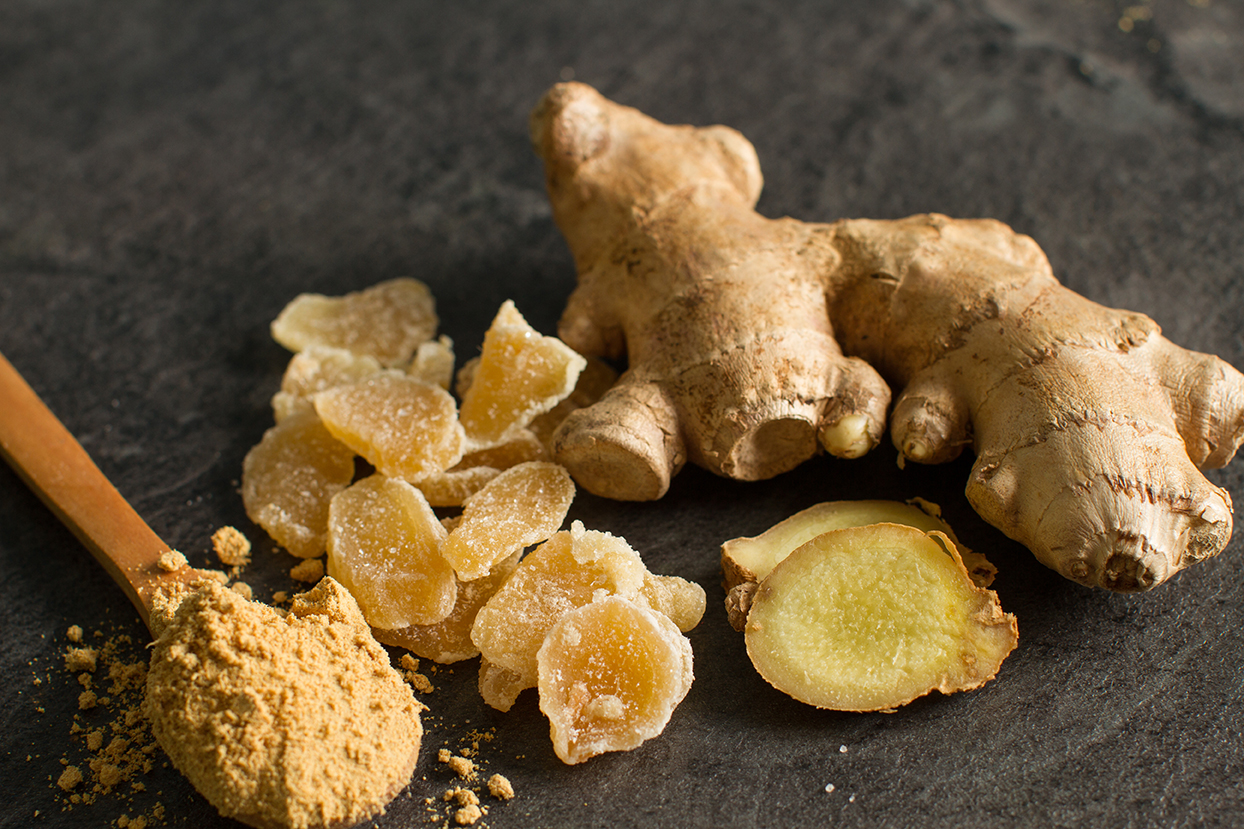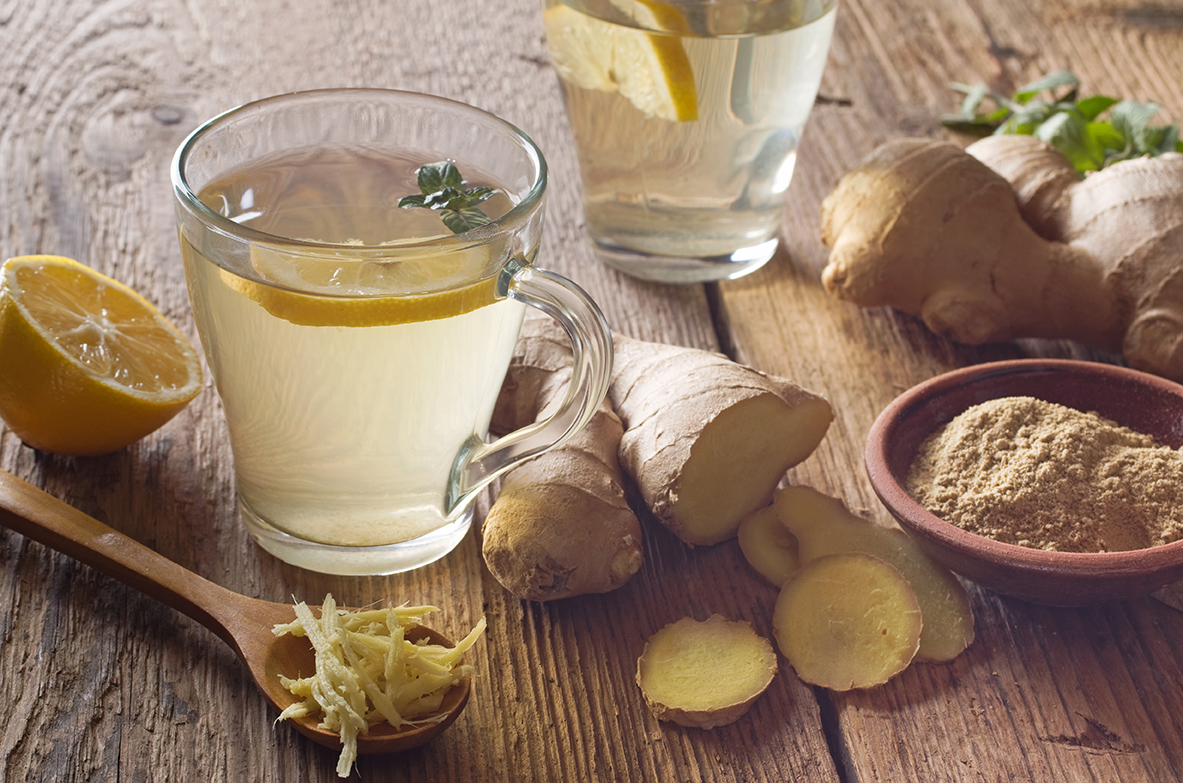The benefits of ginger
Over the centuries,ginger has been used by manyculturesbecause of its medicinal properties. We explore the many ways that you can add it to meals and we show you how to useitin your daily routine.
TRIED AND TESTED
Share

Ginger has gone from being an ingredient that, years ago, was almost exclusively associated with Asian cookery to being part of our pantry. It is a plant with long leaves and pretty purple flowers, although its horizontally-growing stem is the part which provides the health benefitsthat have made it so popular. It grows in all tropical regions around the world and is characteristic of the countries of South-east Asia where it has been used as a medicinal plant and in cookery from time immemorial. Ginger reached Europe during the spice trade and was already being used by the ancient Greeks and Romans. Today, its consumption has extended throughout the West and a growing number of people include it in their diet.
How should you eat ginger?
In the West, ginger is used in its fresh form, as well as dried and powdered. It is used to season sweet dishes such as desserts and some types of biscuits. It is also present in ginger ale. Its spicy flavour and aroma make it the perfect ingredient for grinding, grating or using as a spice. It can be included in sauces or as an accompaniment to other main dishes. It is also commonly found as the main ingredient in tea, accompanied by honey and lemon. It is greatly used in Asian cookery, particularly in China, Japan and India, where it has become one of their emblematic ingredients. To give you an idea of what this food means in these countries, think of itas what garlic means to Mediterranean cooking.

Medicinal uses of ginger
Traditional Chinese medicine has often used ginger because of the properties that have been attributed to it. According to the Journal of the Dr Antonio Esteve Foundation, an organisation whose objective is to stimulate the progress of pharmacotherapeutics through communication and scientific discussion, these are some of its main benefits:
- Digestive problems: ginger is a good aid to digestion. The phenolic compounds in ginger help to relieve gastrointestinal irritation, stimulate the production of saliva and bile and reduce gastric contractions.
- Alleviates nausea: eating ginger may alleviate nausea, and for this reason it is recommended for pregnant women. Studies carried out have observed that pregnant women who took ginger reported less nausea than those who were given a placebo.
- Menstrual pain: in many countries, ginger tea is a popular remedy for treating colds and menstrual pain.
- Anti-inflammatory: ginger has been used for centuries to reduce inflammation and it is believed to be effective against muscular pain caused by physical exercise.
- Lowers sugar levels:ginger has been shown to lower blood sugar levels and to improve various risk factors of heart disease in patients with type-2 diabetes.
- Infections: gingerol is the active substance found in fresh ginger. It can reduce the risk of infection and is effective against oral bacteria related to inflammatory and periodontal disease, such as gingivitis and periodontitis.
- Colds and flu: ginger has benefits for the immune system, so it helps the body to keep colds and flu at bay. Ginger poultices are useful for treating the common cold as they can reduce mucus production.
- Stress relief: thanks to the properties contained in cineole, ginger helps to reduce levels of anxiety and can regulate stress levels.
How to cook with ginger
Fresh ginger will last up to three weeks in the fridge and up to one year in the freezer. We recommend that you wrap it in cling film to preserve all its properties. When you are going to use it, peel off part of its skin and grate it. Add it to any salad, meat or fish and you will give it a delicious oriental flavour. Another way to use it in salads is to make a dressing with olive oil, a few teaspoonfuls of honey, one cup of soy sauce, the juice of a lemon, three cloves of garlic, three spoonfuls of grated fresh ginger, a spoonful of mustard and ground black pepper.
You can also add ginger to your cooking by grating a little and adding it to a stir-fry or by adding a large piece during cooking and removing it before serving. As an infusion with a little honey and lemon, it can help to soothe a sore throat. You can also use it in sweet dishes. Ginger biscuits are well-known, but you can also use it when making cakes and sponges.






